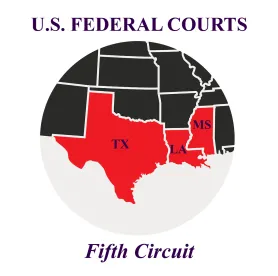A common complaint of a minority shareholder is the denial of access to the corporation’s books and records. A shareholder enjoys the right to examine and copy certain records of the corporation in which the shareholder owns shares. That right exists by statute, see Tex. Bus. Orgs. Code § 21.218(b), and at common law, see Texas Infra—Red Radiant Co. v. Erwin, 397 S.W.2d 491, 493 (Tex. App.—Eastland 1965, writ ref’d n.r.e.). Section 21.218 provides:
On written demand stating a proper purpose, a holder of shares of a corporation for at least six months immediately preceding the holder’s demand, or a holder of at least five percent of all of the outstanding shares of a corporation, is entitled to examine and copy, at a reasonable time, the corporation’s books, records of account, minutes, and share transfer records relating to the stated purpose. The examination may be conducted in person or through an agent, accountant, or attorney.
Tex. Bus. Orgs. Code § 21.218(b). Therefore, before the shareholder is entitled to inspect books and records, it must provide a proper purpose for doing so in writing.
Often, a shareholder may want to inspect books and records for an improper purpose, i.e., to gain an advantage for its competing business. When there is a fact issue raised on proper purpose, the parties are entitled to a jury trial on that issue. For example, in In re Elusive Holdings, Inc., No. 03-21-00563-CV, 2021 Tex. App. LEXIS 10186 (Tex. App.—Austin December 30, 2021, orig. proceeding), a former COO of a company was fired for allegedly starting a competing business. He was still a shareholder and sent written demand to inspect records, which was denied. The COO filed suit to compel the inspection, and the defendant company stated that he did so for an improper purpose. The trial court granted the inspection, and the company filed a petition for writ of mandamus in the court of appeals against the trial court based on the fact that the company was denied a jury trial on the issue of whether the purpose was proper. The court of appeals granted the mandamus, stating:
Section 21.218(b) conditions the shareholder’s right on the shareholder’s stating a “proper purpose” for the demand to examine and copy. The resisting corporation enjoys the right to a jury trial on “proper purpose” under certain conditions, including that it has pleaded facts sufficient to raise an issue on “proper purpose”:
Although the right to a jury trial does not exist in all situations where mandamus is applicable, it does exist in the situation where a corporation, in resisting a stockholder’s attempt to inspect the books and records, raises by its pleadings a fact issue over whether the stockholder has a proper purpose for wanting to see the books.
Id.; see also Accounting Search Consultants, Inc. v. Christensen, 678 S.W.2d 593, 595 (Tex. App.—Houston [14th Dist.] 1984, no writ) (citing Uvalde Rock Asphalt and noting resisting corporation’s “entitle[ment] to a jury’s determination of the contested factual issue of whether the shareholder had a proper purpose in demanding to inspect the books”); accord Guaranty Old Line Life Co. v. McCallum, 97 S.W.2d 966, 968 (Tex. App.—Dallas 1936, no writ).
…
We conclude from the allegations in the Second Amended Petition and amended answer and the statements in the Response and attached declaration by the CEO that Elusive sufficiently raised a fact issue on “proper purpose” under Section 21.218(b). The Response and declaration assert more than simply hostility or mere conclusory statements without specific facts. Instead, the CEO named specific kinds of documents that White had allegedly taken and refused to return and the specific customers who were business opportunities for Elusive that White allegedly usurped for his new business, using the unreturned confidential information to land those deals. There were thus specific facts about White’s alleged bid for competitive advantage by seeking more of Elusive’s records. See Uvalde Rock Asphalt, 425 S.W.2d at 819-20; Dyer Custom Installation, 133 S.W.3d at 882-83. And the Response, with supporting declaration evidence, discussed White’s “improperly us[ing] information secured through a prior” download of records from Elusive and his alleged improper past purchases constituting “conduct detrimental to the company.” See Dyer Custom Installation, 133 S.W.3d at 882-83.
We stress that Elusive’s live petition, answer, and Response and attached declaration are not necessarily conclusive, at this procedural stage, about White’s lacking a “proper purpose.” They are instead—and they need only have been—sufficient to raise a fact issue. See Uvalde Rock Asphalt, 425 S.W.2d at 820. After White filed his books-and-records mandamus petition, Elusive filed a jury demand, and there is no argument before us that the jury demand was otherwise ineffective. See generally Tex. R. Civ. P. 216. Elusive raised a fact issue on “proper purpose” and so is entitled to a jury trial on the issue. Because it denied Elusive this right, the trial court abused its discretion
Id.




 />i
/>i

